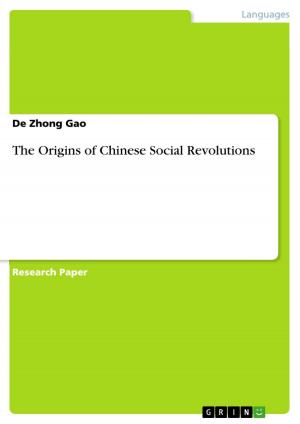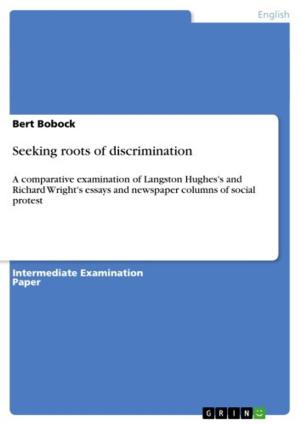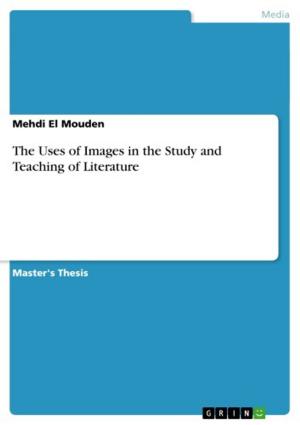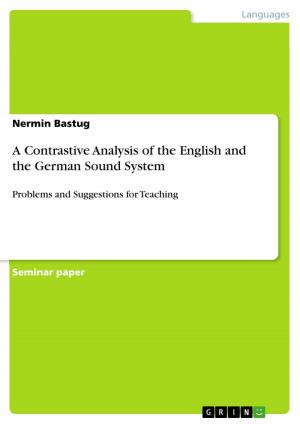Why Is the Issue Raised in Romans 9-11 So Important for Paul and How Does He Respond?
Nonfiction, Religion & Spirituality, Bible & Bible Studies| Author: | Bernadette O'Connor | ISBN: | 9783640602544 |
| Publisher: | GRIN Publishing | Publication: | April 23, 2010 |
| Imprint: | GRIN Publishing | Language: | English |
| Author: | Bernadette O'Connor |
| ISBN: | 9783640602544 |
| Publisher: | GRIN Publishing |
| Publication: | April 23, 2010 |
| Imprint: | GRIN Publishing |
| Language: | English |
Essay from the year 2010 in the subject Theology - Biblical Theology, grade: 63.00, , course: BA in Theology, language: English, abstract: Whilst Paul, as can be seen in his writings overall, had worked faithfully in preaching to all particularly the Gentiles, Romans 9-11 reveals his concerns for both the Jewish converts and the Gentiles predominantly in relation to their attitudes towards each other. For instance, the Jewish converts who had returned to Rome following their expulsion by Claudius,(10ce-54ce;Acts.18:2), were specifically concerned regarding the annulment of the Law which they believed was required to make them ritually pure. While the main function of the Law was to maintain the holiness of Israel and protect its purity it also indicated that the Israelites were a people called by God and set apart from all other nations. Then again the Gentile Christians had a tendency to treat the Jewish non-Christians as inferior and rejected the concerns of the Jewish Christians for their non-practice of the Law. Consequently, and similar to the historian Josephus, Paul in his letter to the Romans related the traditional Jewish story of their origins with radical Christian modification, (cf.Rom 9), to try and wean the Gentile converts away from the latent pride they had in being Romans. In doing so he undermined the story of Rome. However it seems that 9-11 was a clear effort on his part to reconcile the Jews and the Gentiles in their rationale, ensuring that they understood they were both equal in the eyes of God. Therefore, and for the purpose of this essay, a succinct insight into Paul's theological thinking will firstly be referred to, followed by a brief portrayal of the beliefs of Judaism as a singular faith group. Then an in depth discussion of Romans 9-11 will take place which will portray the ingenuity of Paul in using vocabulary in such a way as to challenge his listeners who were both Jewish and Gentile converts. In bringing it all together in the conclusion the reader will finally understand why the issue raised in 9-11 is so important to Paul and why he uses the particular technique that he uses in his response.
Essay from the year 2010 in the subject Theology - Biblical Theology, grade: 63.00, , course: BA in Theology, language: English, abstract: Whilst Paul, as can be seen in his writings overall, had worked faithfully in preaching to all particularly the Gentiles, Romans 9-11 reveals his concerns for both the Jewish converts and the Gentiles predominantly in relation to their attitudes towards each other. For instance, the Jewish converts who had returned to Rome following their expulsion by Claudius,(10ce-54ce;Acts.18:2), were specifically concerned regarding the annulment of the Law which they believed was required to make them ritually pure. While the main function of the Law was to maintain the holiness of Israel and protect its purity it also indicated that the Israelites were a people called by God and set apart from all other nations. Then again the Gentile Christians had a tendency to treat the Jewish non-Christians as inferior and rejected the concerns of the Jewish Christians for their non-practice of the Law. Consequently, and similar to the historian Josephus, Paul in his letter to the Romans related the traditional Jewish story of their origins with radical Christian modification, (cf.Rom 9), to try and wean the Gentile converts away from the latent pride they had in being Romans. In doing so he undermined the story of Rome. However it seems that 9-11 was a clear effort on his part to reconcile the Jews and the Gentiles in their rationale, ensuring that they understood they were both equal in the eyes of God. Therefore, and for the purpose of this essay, a succinct insight into Paul's theological thinking will firstly be referred to, followed by a brief portrayal of the beliefs of Judaism as a singular faith group. Then an in depth discussion of Romans 9-11 will take place which will portray the ingenuity of Paul in using vocabulary in such a way as to challenge his listeners who were both Jewish and Gentile converts. In bringing it all together in the conclusion the reader will finally understand why the issue raised in 9-11 is so important to Paul and why he uses the particular technique that he uses in his response.















